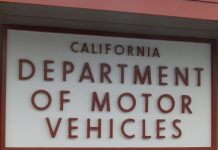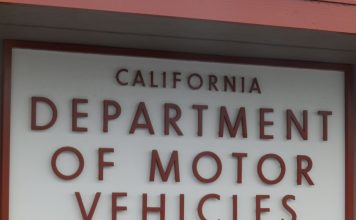Sometimes, justice is swift.
Less than 24 hours after supporters of Measure A filed a legal
challenge against a ballot argument written by the measure’s
opponents, the two sides reached a compromise on the argument’s
language. Both sides claimed victory.
Gilroy – Sometimes, justice is swift.
Less than 24 hours after supporters of Measure A filed a legal challenge against a ballot argument written by the measure’s opponents, the two sides reached a compromise on the argument’s language. Both sides claimed victory.
“In a clear victory for the voters of Santa Clara County, the court is forcing opponents of Measure A to delete and amend a slew of inaccurate and misleading statements,” said Bob Brownstein, a spokesman for the Measure A campaign, who also called the ballot argument “astonishing” in its inaccuracies.
Measure A is a half-cent sales tax to fund county operations. At issue in the lawsuit were four statements in the opposition argument authored by Mountain View City Councilman Greg Perry:
– That the tax would give Santa Clara County the highest tax rate in the state.
– That the Silicon Valley Leadership Group is the financial backer of Measure A.
– That SVLG is pushing a bill, SB 552, that would exempt its corporate members from the new tax.
– That the tax would last for more than 30 years.
Perry agreed to drop the clause that implied the tax would last longer than 30 years and the language about the SVLG’s financial support.
Other changes were more cosmetic.
There is a bill endorsed by Silicon Valley’s business community that would exempt SVLG members from the state portion of sales. The bill, SB 1291, is sponsored by State Senator Elaine Alquist, who also sponsored SB 552. The new bill would not exempt business to business transactions from the Measure A tax, but a large majority of sales tax – 6 percent – is paid to the state.
Also, the argument will clarify that Measure A would push the county’s tax to 8.75 percent, tied with other counties for the highest in the state.
“Overall it came out great. The paragraph they wanted deleted is in there,” Perry said, referring to the description of SB 1291. “That was the most important thing. We’re going to continue to fight this and get the word out that people are being pulled into a tax to pay for who knows what when the backers are trying to lower their own taxes.”
Some opponents of the tax have also criticized the measure as an end-run around voters to raise money to build a BART extension to San Jose.
Measure A doesn’t mention BART but does promise money for housing, healthcare, social services and transportation.
When county supervisors placed the measure on the ballot, the Santa Clara Valley Transportation Authority decided not to go forward with its own sales tax measure for BART, which would have required approval from two-thirds of voters. The county measure, because it doesn’t promise any specific projects, will pass with a simple majority. The VTA, meanwhile, continues to plan its financial future with the assumption that it will receive new sales tax revenue.
County supervisors have denied that there is any arrangement to funnel money to the VTA if the tax passes, but a ballot argument in the measure’s favor mentions BART as a possible benefit of a new tax.
And the argument written by Perry, who is also a VTA director, describes Measure A as the result of backroom deal involving county politicians and the SVLG, which has led several campaigns to fund BART and transportation projects through sales taxes, including the 2000 Measure A, a half-cent tax to build BART and other transit improvements.
Earlier this week, anti-tax advocates sued the county to have Measure A removed from the June ballot. The suit argues that the measure should be contested in November. California law requires general tax measures to be on general election ballots, typically in November. There are several ways that the June primary election could be considered a general election.
Thursday, Santa Clara County attorneys filed a motion to dismiss the suit, arguing that the plaintiffs, led by Doug McNae of the Silicon Valley Taxpayers’ Association, did not file the suit within the 10-day window to challenge the measure.
At press time, the suit had not been resolved.














